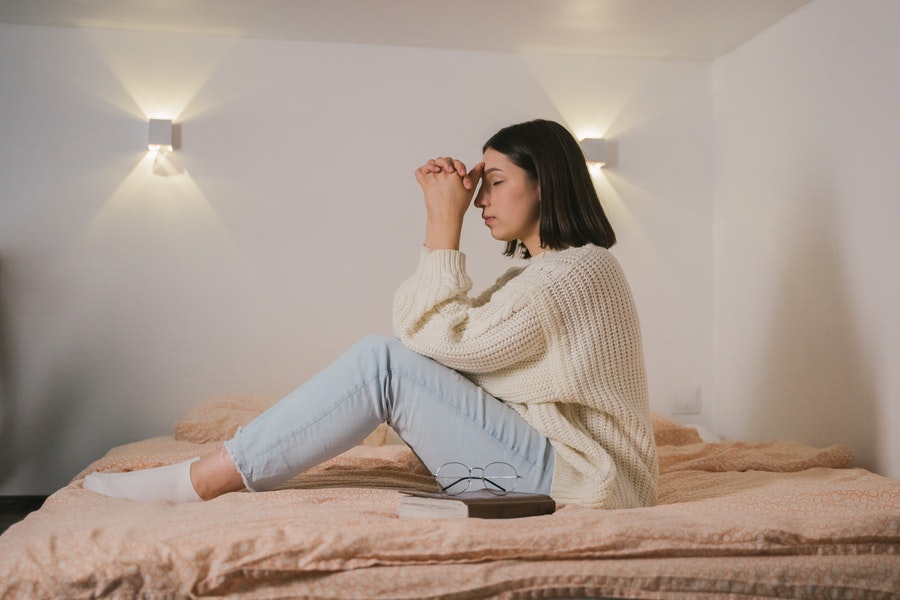
In the past year, I’ve experienced mental health challenges like never before — and I know I’m not alone in that. Throughout 2020, both my anxiety and depression, which I’ve been managing for years, were very triggered by the current events.
Being stuck at home more, missing out on social connection, and watching loss and injustice unfold in our country was difficult. After months and months of the pandemic, social unrest, and stress of the election, my mental health took a hit, and I found myself looking for new ways to manage it.
I reached out to a trusted mentor who I have asked for advice many times over the years. She suggested I try spending the first moments of every day in prayer and reflection before I do anything else, especially before looking at my phone. She encouraged me to try this for 30 days in order to make it a habit.
I was resistant. My stress had reached such peak levels that I wasn’t sure prayer would work. Prayer was something I’d turned to many times, but only in times of distress, and I never really paid attention to whether or not it brought me relief. But now, I was open to trying anything as I felt exhausted.
So, I gave it a try. The first morning, I woke up and pulled out a prayer book that was my grandmother’s. Immediately, I noticed how calm I felt. Opening a prayer book was much more peaceful than reading the latest headlines!
By day three of praying each morning, I felt a noticeable difference. I’d wake up, get a glass of water, and go back to bed. Then, I’d start the prayer and reflection time. For me, this varied from a guided meditation or journaling, or simply saying my own, silent prayers in gratitude for what I have and in hope for a better world. Sometimes I’d read an inspirational quote and reflect on what it meant for me in that moment.
The days following January 6 were when my new morning prayer routine really made such a difference. Watching violence play out on TV rattled me — and it seemed like all the fears and anxieties in the U.S. were reaching a crescendo. And with the pandemic being at its worst yet here in California, I felt extremely shaken and worried about the future. Despite this, I felt more centered and able to pull back from the insanity. Prayer didn’t take away the stress, but it helped me to handle it in a way I don’t think I could have without a routine.
Once I made prayer a part of my morning, I realized how meaningful it was for me to do the daily maintenance work, as opposed to praying only when things got really bad. It helped me to stay grounded and not get swept up in the swirl of everything going on around me.
For me, adding prayer to my days felt like I was becoming rooted, so no matter what winds come, I wouldn’t get blown over. I’ve been sleeping better and feel more prepared to handle the highs and lows of life.
My new practice was put to the test yet again with the California wildfires. When another dire evacuation warning came around, I found myself turning to prayer, and I discovered I felt much calmer about the situation. Every time I’d feel my thoughts start to spiral, I’d pray. (And luckily, the fire was extinguished before I had to evacuate.)
Prayer hasn’t eradicated my mental health issues, nor did I expect it to, but it’s definitely helped me to manage them better. I still meet with a therapist when I feel like I need extra support. I know my limits and have created routines that nurture my health, physically and emotionally, like getting enough sleep, eating nutritious food, and scheduling a day of rest each week. And now, prayer has become an important component of my wellness routine.
By turning to a power greater than myself, I remember that I don’t have to carry my own burdens or the weight of the world on my own. It’s a relief to be able to bring my concerns to God and to ask for help with situations that are causing me stress.
Originally published August 19, 2021.